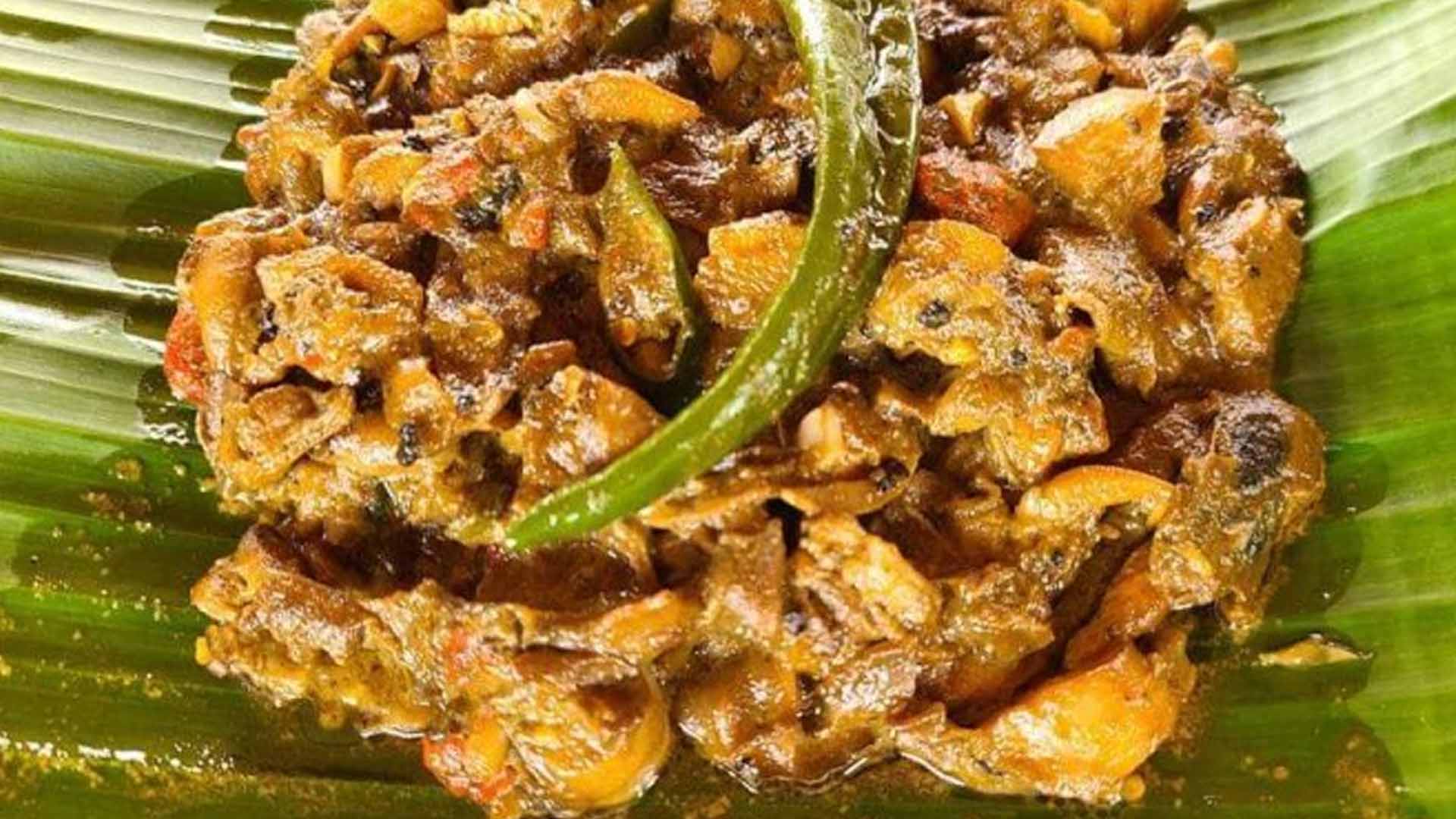No trip to Bicol will ever be complete without basking in its flavorful culinary delights. So, if you are planning on a gastronomic adventure this Holy Week, try these delicacies that are guaranteed to excite your tastebuds, minus the guilt.
Albay’s native snacks
Stop by this stretch of street stalls in Paulog village in Ligao City if you are craving a quick bite that is distinctively Bicolano. From crispy fried snacks to flavorful native delicacies, this food strip features an array of options to satisfy your hunger.
Try “sinapot” which is similar to “maruya” (banana fritters), if you prefer the familiar, and “biniribid,” a savory snack made of glutinous rice flour and coconut milk, if you are feeling more adventurous. Deep-fried and doused in white sugar or brown sugar glaze, this is a perfect option if you are in need of a sugar rush.
Do not leave this snack haven without tasting its famous rice puto macapuno. This fluffy steamed rice cake, stuffed with sweet coconut filling and cooked using a coconut shell cake mold, is a delightful treat that should not be missed.
Sorsogon’s exotic shell dish
Abstaining from meat but still wanting to load up on your protein intake? Try “baluko,” the province’s exotic pen shell that can be enjoyed in a variety of ways.
Whether it is cooked in coconut milk, deep-fried, or stewed in soy sauce and vinegar ala ‘”adobo” style, this seafood staple, which looks like a combination of scallops and mussels but is generally bigger than the two, can be found in the province’s wet markets.
To taste this uniquely Sorsoganon dish, head to Bukid Ilaria, an agritourism farm located in San Isidro village in Castilla town. They serve the best “baluko” dishes on this side of the province.
Catanduanes’ sticky rice goodness
“Latik,” a steamed glutinous rice cake delicacy cooked in coconut milk and malunggay extract, topped with a generous serving of caramelized coconut syrup, and wrapped in banana leaf, is the province’s signature “kakanin.”
This native rice cake specialty can be eaten any time of the day, whether as a breakfast staple, a midday or afternoon snack, or as a decadent dessert.
If you are looking for a pasalubong option beyond the province’s abaca-derived products, stop by Impling’s Native Delicacies in Sogod Tibgao in Virac town and grab a box of the province’s beloved “latik.”
Camarines Sur’s smallest edible fish
Whoever said that good things come in small packages must have tasted Camarines Sur’s famous fish dish, which features the Sinarapan, the world’s smallest edible fish endemic to the Philippines, and generally abounds in Lakes Buhi and Bato in this province.
Sinarapan can be savored in a variety of ways depending on one’s taste buds. It can be dried, deep-fried, sauteed, cooked in coconut milk, or simmered in vinegar, making this humble fish dish a versatile staple on every table.
Camarines Norte’s pastry treats
If you are dying to host that lazy afternoon coffee or tea party and you just happen to be in Camarines Norte, pandecillos and pili bread rolls are your best allies.
Pandecillos, the decadent pastry oozing with pili nuts and yema-like filling, and pili bread roll, a pillowy freshly baked bread with creamy pili nut spread, can be bought in local stores and “pasalubong” centers.
With their rich nutty flavor, these pastries will surely be a hit with those who want to revel in the region’s prized nut beyond pili tarts and candies.
Masbate’s dried fish delights
If you want to level up your usual dried fish dishes, Masbate province is the best place to be.
With its intense flavor, dried fish here is not just a breakfast staple; it can also be the star during lunchtime when cooked in rich coconut milk and malunggay leaves, more commonly known as “pinakul-aw na daing.”
Aside from dried fish, the province also boasts diverse seafood products, so dine in the local food hubs in the province to savor its mouth-watering seafood dishes this Lenten season. (PNA)





















